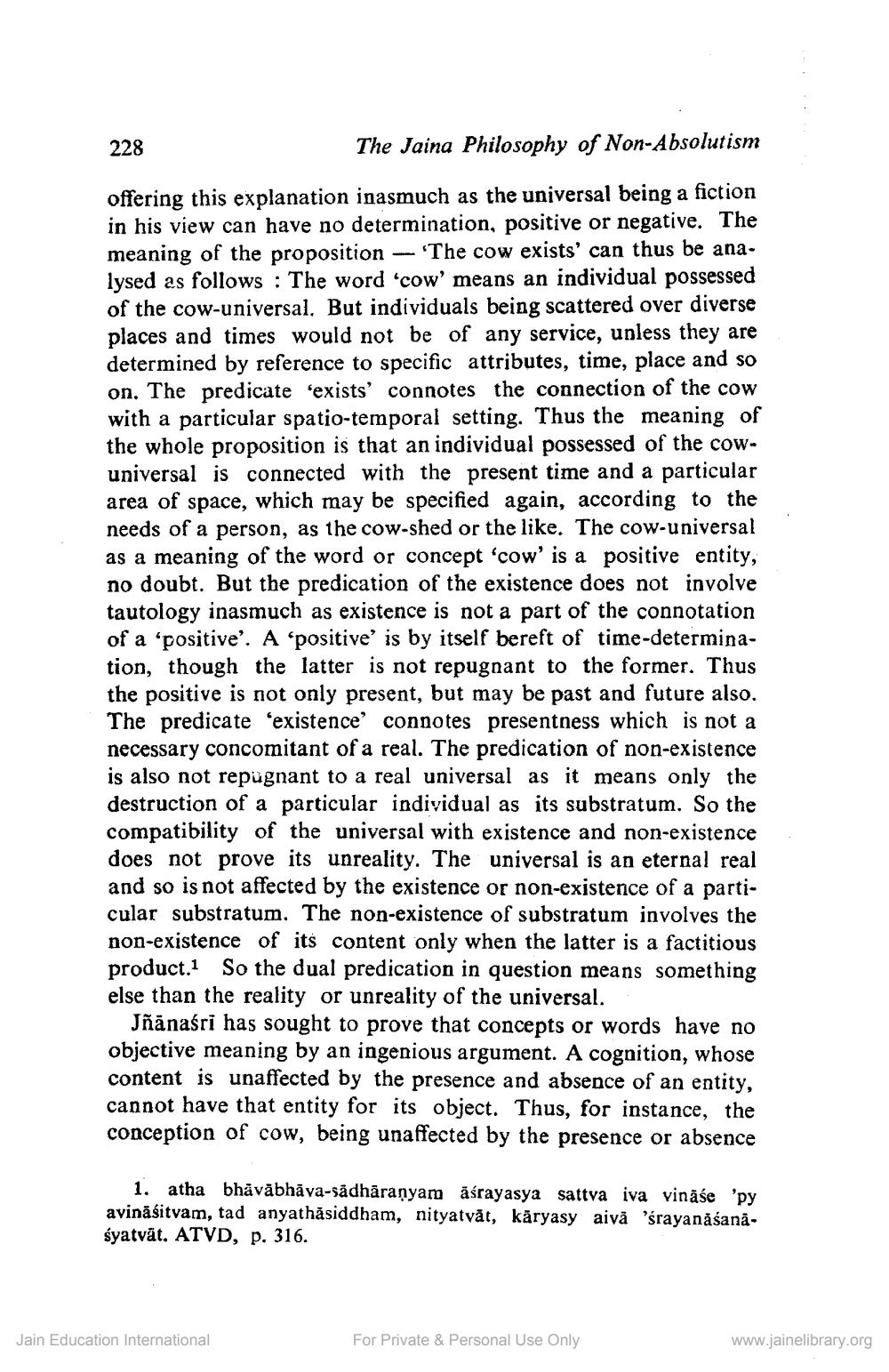________________
228
The Jaina Philosophy of Non-Absolutism
offering this explanation inasmuch as the universal being a fiction in his view can have no determination, positive or negative. The meaning of the proposition - 'The cow exists' can thus be analysed as follows : The word 'cow' means an individual possessed of the cow-universal, But individuals being scattered over diverse places and times would not be of any service, unless they are determined by reference to specific attributes, time, place and so on. The predicate 'exists' connotes the connection of the cow with a particular spatio-temporal setting. Thus the meaning of the whole proposition is that an individual possessed of the cowuniversal is connected with the present time and a particular area of space, which may be specified again, according to the needs of a person, as the cow-shed or the like. The cow-universal as a meaning of the word or concept 'cow' is a positive entity, no doubt. But the predication of the existence does not involve tautology inasmuch as existence is not a part of the connotation of a 'positive'. A ‘positive' is by itself bereft of time-determination, though the latter is not repugnant to the former. Thus the positive is not only present, but may be past and future also. The predicate "existence' connotes presentness which is not a necessary concomitant of a real. The predication of non-existence is also not repugnant to a real universal as it means only the destruction of a particular individual as its substratum, Sot compatibility of the universal with existence and non-existence does not prove its unreality. The universal is an eternal real and so is not affected by the existence or non-existence of a particular substratum. The non-existence of substratum involves the non-existence of its content only when the latter is a factitious product.1 So the dual predication in question means something else than the reality or unreality of the universal.
Jñānaśri has sought to prove that concepts or words have no objective meaning by an ingenious argument. A cognition, whose content is unaffected by the presence and absence of an entity, cannot have that entity for its object. Thus, for instance, the conception of cow, being unaffected by the presence or absence
1. atha bhåvābhāva-sadhāranyam äśrayasya sattva iva vināśe 'py avinäsitvam, tad anyathăsiddham, nityatvät, käryasyaivå 'śrayanåsanaśyatvät. ATVD, p. 316.
avinásitwan,
Jain Education International
For Private & Personal Use Only
www.jainelibrary.org




